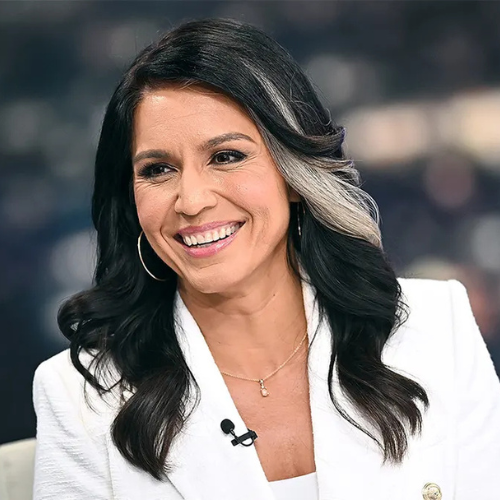President-elect Donald Trump has made a decision that is stirring controversy in national security circles. He has chosen Tulsi Gabbard, a former Democratic congresswoman, to lead the U.S. intelligence community. This unexpected move has sparked concerns about the future of intelligence in the United States and its alliances around the world.
Why Gabbard’s Selection is Raising Eyebrows
Tulsi Gabbard is a name that surprises many in the intelligence field. At 43 years old, she is a U.S. Army Reserve officer and has been involved in politics for years, but she does not have extensive experience in intelligence work. Her past views on sensitive issues like Russia and Syria are causing unease.
Gabbard has been critical of U.S. military interventions in places like Syria. She even met with Syrian President Bashar al-Assad in 2017, a controversial figure backed by Russia. Many in Washington see her as too sympathetic to Russia, especially since she criticized President Joe Biden’s support for Ukraine. When Russia invaded Ukraine in 2022, Gabbard suggested the war might have been avoided if NATO and the U.S. had taken Russia’s security concerns more seriously.
Critics worry that her selection isn’t about qualifications but about loyalty to Trump. Intelligence officials anonymously said they are concerned about how her views might shape U.S. intelligence operations, which rely on impartiality and expertise.
Concerns from Allies and Intelligence Experts
The U.S. maintains robust intelligence-sharing partnerships, particularly through the “Five Eyes” alliance, which comprises the U.K., Canada, Australia, and New Zealand. Some allies are nervous about whether Gabbard’s leadership might disrupt these critical relationships. A European defense official described her as leaning heavily toward Russia’s point of view but added that European agencies would adapt if necessary.
Experts and former intelligence officers fear Gabbard’s appointment could politicize intelligence work. They worry she might prioritize Trump’s political agenda over facts, potentially leading to biased assessments of global threats.
Suspected Gaza Intelligence Leak Sparks Investigation into Netanyahu’s Aide
Randal Phillips, a former CIA official, said this could open the door to questionable actions by intelligence leaders. There’s also concern that foreign countries might hesitate to share information with the U.S., fearing it could be mishandled or used improperly.
Divided Reactions in Washington
Trump’s decision to pick Gabbard isn’t sitting well with everyone in Washington. Democratic critics, like Representative Adam Smith, argue that Gabbard’s role is more about serving Trump’s interests than serving the country. They highlight her lack of qualifications for overseeing 18 intelligence agencies under the Office of the Director of National Intelligence, a role created after the 9/11 attacks to improve coordination among U.S. intelligence bodies.
Even within Trump’s Republican Party, reactions are mixed. Senator Marco Rubio, who has become a Trump supporter, praised Gabbard as a “revolutionary pick.” However, others like Senator John Cornyn, a member of the Intelligence Committee, remain cautious, saying they will thoroughly vet her during the confirmation process.
Despite the concerns, Republicans hold a 52-48 majority in the Senate starting in January, which increases the likelihood of Gabbard’s confirmation.
The Bigger Picture
Gabbard’s nomination is part of a larger pattern in Trump’s picks for key roles in his second-term administration. Alongside Gabbard, he has nominated controversial figures like Congressman Matt Gaetz for attorney general and Pete Hegseth for defense secretary. These choices reflect Trump’s effort to consolidate loyalty among his team.
While some analysts hope Trump’s choice of John Ratcliffe to head the CIA might balance Gabbard’s leadership, Ratcliffe is also seen as a close Trump ally. This raises questions about whether the intelligence community can remain neutral and focused on facts during Trump’s presidency.
For now, the world is watching closely as Trump prepares to take office in January. Both America’s friends and foes are keen to see how this decision will shape the role of the U.S. in global intelligence operations.


